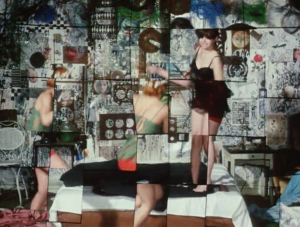
As Parvulescu writes in ‘So We Will Go Bad’, “Daisies shows us that the spectacular, cheeky revolt against manners cuts the body, as in the scene in which the two Maries play scissors and literally cut the cinematic image into an undistinguishable mosaic.” When watching this scene in Daisies, I was most struck by its resemblance to Nobuhiko Obayashi’s Hausu (1977), which came out 11 years later. Quite different in plot, but their tones couldn’t be more similar, with a focus on finding the most absurd scenarios possible then crafting it with surreal fervour.
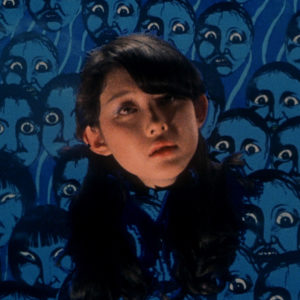
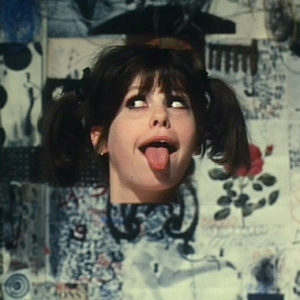
Take these two shots as example, where both leading girls have had their heads cut off. As floating heads, their fate appears gruesome; yet they continue to live beyond this experience that ought to be fatal. Their clear difference, however, is in what each film does with this horrifying image. For Daisies, it’s a point of comedy, with the bizarre situation played for laughs as the girls themselves have fun with what they can do to each other. With Hausu, on the other hand, it leads to one of the more terrifying sequences, in a film that is nightmarish from start to finish, as the girls are subjected to some of the worst torture imaginable in this abyss of surrealism.
While the floating head is but an idea in Daisies, used in a single scene, for Hausu it is a recurring motif. There is something quite rightly grotesque about seeing a bodiless head floating about, and Hausu finds every possible use for such an image, animating it into a persistent source of terror. But it is in its uncanniness that the horror can be a source of laughter, the torment funny in its absurdity. There is an inherent comedy to surrealism, as it’s very nature is about disrupting the machinations of life. When taken to an extreme, it will always be humorous.
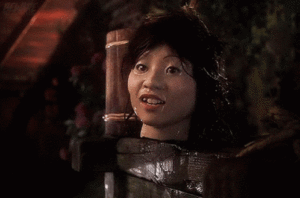
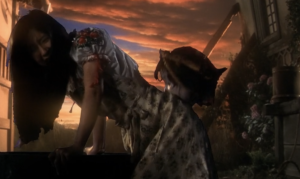
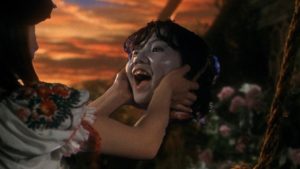
Surrealism in both horror and comedy are so fascinating, and I think the carnival is what separates one from the other. In Hausu, it seems like we’re meant to relate to these characters in some way and are thus horrified by their plight whereas in Daisies we are given an allowance to distance ourselves from the body horror which allows us to laugh.